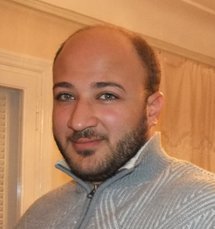KABUL: Afghanistan’s high peace council will hold talks with Pakistan’s leadership as part of an effort to find a diplomatic solution to the nearly decade-old Taliban insurgency, its deputy chairman said Sunday.
Ataullah Ludin, deputy chairman of the 70-member High Peace Council, said a delegation will visit Islamabad on Tuesday to discuss the group’s efforts to initiate talks with the Taliban. The delegation of 15 people will meet with Pakistan’s president, its prime minister and other senior officials.
Pakistan is a key player in the Afghan conflict and any military or diplomatic solution hinges on Islamabad’s willingness to help either broker peace, or assist in wiping out an insurgency that is mostly being launched from its territory.
"We are very optimistic. It is clear that Pakistan and Afghanistan are the victims of terrorism, and both countries have their own problems. It’s also clear to us that both countries need to work together to solve those problems. We are very optimistic that we will come back with good achievements," Ludin said.
Led by former Afghan President Burhanuddin Rabbani, the council has made little headway since it was formed last October.
President Hamid Karzai has made reconciliation a top priority and formed the council to try and find a political solution to the insurgency. At the same time, the US-led coalition ramped up its military campaign in an effort to pound Taliban commanders to the negotiating table.
There are no signs that either strategy is having much effect on the senior Taliban leadership, mostly based in Pakistan. They have refused any peace overtures and threatened to kill any of their members who talk to the government, the council or the US-led coalition.
However a number of exploratory talks have taken place with the militants over the past two years, according to lawmakers, peace council delegates and former and current members of the Taliban. The talks were held in various places, including Saudi Arabia, the United Arab Emirates and the Maldives.
The only serious talks in recent months, however, led nowhere after it was revealed by Afghan and NATO officials that the man they thought was a senior Taliban leader turned out to be an impersonator. The man vanished after having been paid to meet with Afghan officials.


